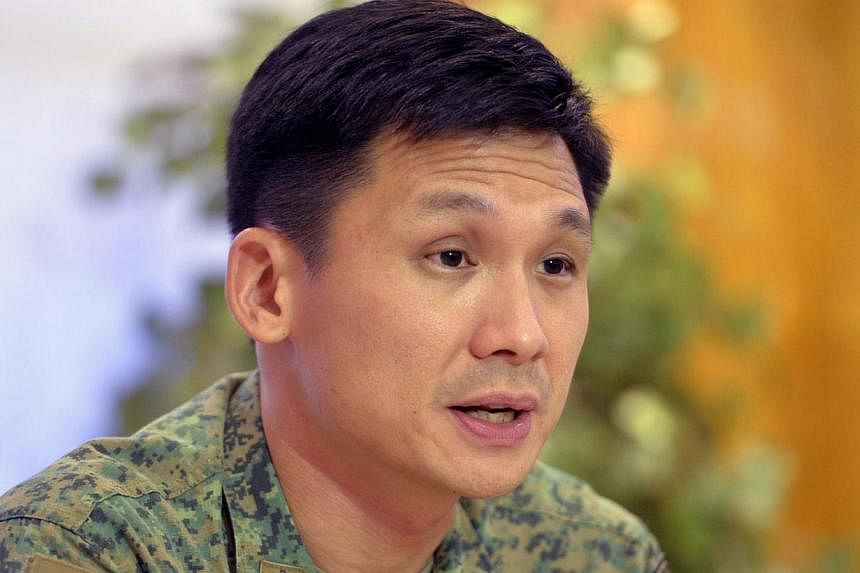The revised Individual Physical Proficiency Test (IPPT) might be easier for servicemen to train for and pass, but it will still ensure that they meet fitness standards required of them to perform their operational roles, said army chief Perry Lim.
The major-general gave this assurance on Wednesday after he announced details of a simplified IPPT with three components instead of the current five.
From April next year, members of the Singapore Armed Forces (SAF) need clear only the 2.4km run, sit-up station and a new push-up station.
The Singapore Police Force and Singapore Civil Defence Force will also use the new test for Home Team servicemen next year.
Instead of having to meet a passing mark for each component, servicemen will clock the fastest time for the run and count their personal best for how many sit-ups and push-ups they can do in a minute. Points will then be accumulated from all three stations.
As servicemen grow older and their fitness levels drop, the required performance standards will change every three years, instead of the current five.
The new IPPT will do without three components: the 4x10m shuttle run, standing broad jump and chin-up stations. The last two have drawn complaints from servicemen who failed them and were sent for remedial training.
While more participants are likely to pass the new IPPT, the changes have raised concern among servicemen that the new fitness test will lower the bar.
Maj-Gen Lim defended the move to have fewer stations, saying the military already has a comprehensive combat fitness test regime in place.
Implemented in 2010, this requires combat-fit career soldiers and full-time national servicemen to clear obstacles that mimic hazards on the modern battlefield, such as blind corners, falling rubble, sewers and long corridors.
Maj-Gen Lim said soldiers already "execute movements that require them to also manage or carry their body weight".
While most operationally ready national servicemen do not have to do combat drills, many undergo route marches and "physically rigorous field exercises that require them to apply many parts of their body", he added.
The new format is also aimed at motivating fitter servicemen to excel and less fit ones to train.
Maj-Gen Lim said that once regular exercise becomes part of a serviceman's lifestyle, "the IPPT is just testing what they do on a regular basis".
He said: "We would like to see more passes from our NSmen, and these will come from a greater motivation to train for IPPT."
At least 3,000 servicemen and women will be put through their paces in a three-month trial of the new IPPT starting in September.
Depending on how well participants fare, Maj-Gen Lim said, the SAF would be "prepared to adjust" performance standards. He added that for a period of one to two years, servicemen would get to choose whether they take the current IPPT or the new one.
Dr Bervyn Lee, a member of the army fitness advisory board, said that while the new IPPT is easier, it should not limit the way servicemen keep fit. He said: "We shouldn't need the SAF or anyone to tell us 'I'm going to test you on these items, so you should be fit only for these items'."

